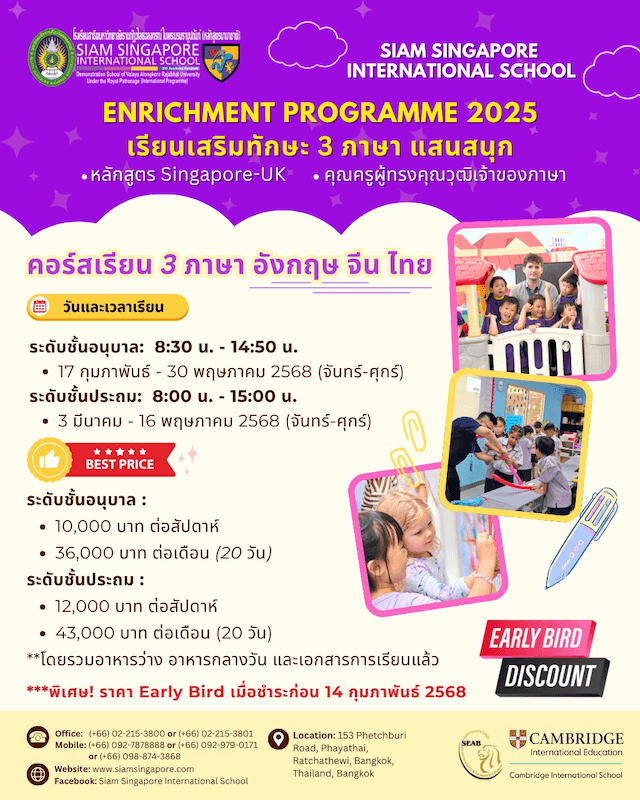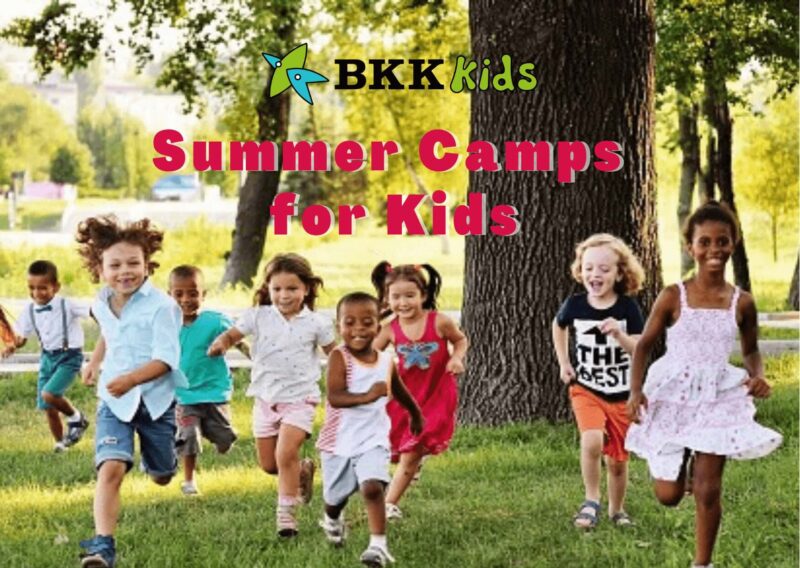CARE Thailand is a school for educational support services. We are founded by a group of parents who were pursuing treatments for their children who have been diagnosed with Autism spectrum. Our goal is to teach individuals with Autism Spectrum Disorder (ASD) and other developmental delays to increase behaviors and skills that are helpful and decrease behaviors that are harmful or negatively affect learning.
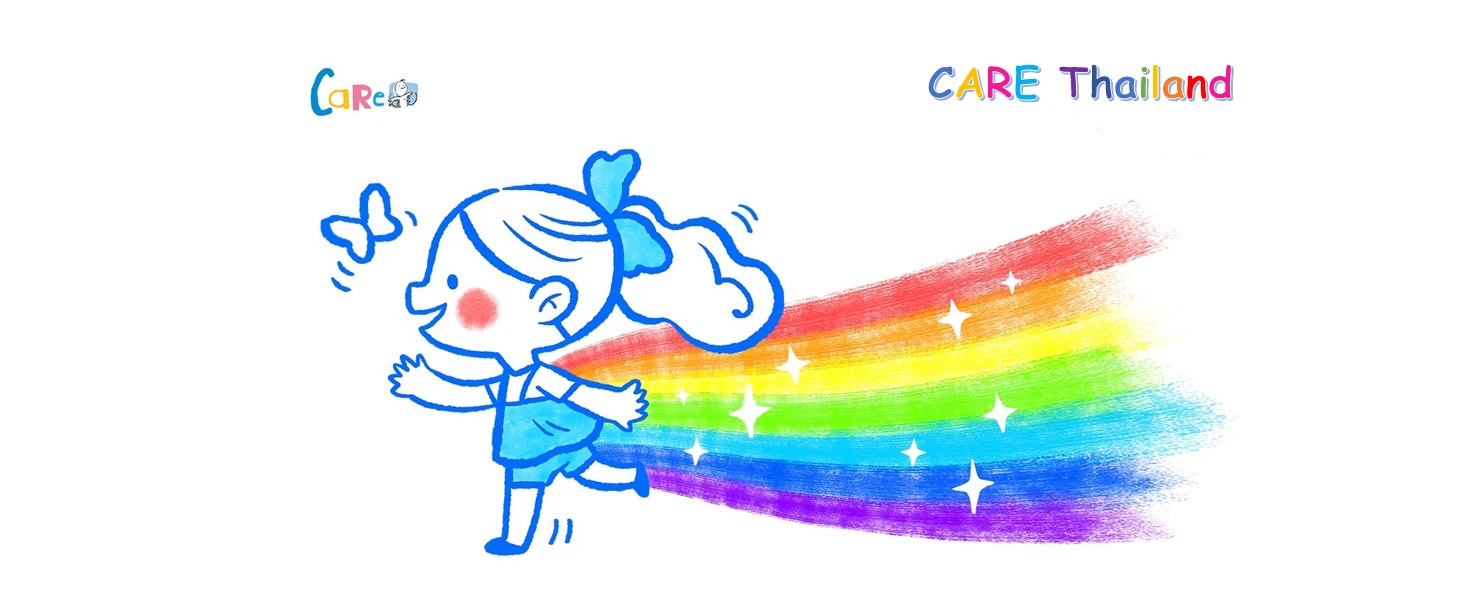
Our mission is to apply the principles of Applied Behavior Analysis (ABA) to work on enhancing appropriate skills and improving socially significant behaviors to help individuals lead independent life. ABA is considered an evidence-based practice treatment by the US Surgeon General and by the American Psychological Association. Evidence-based means that ABA has gone through and passed scientific tests proving its usefulness, quality, and effectiveness. These studies show gaining in intellectual functioning, language development, social skills, and daily living skills.
We believe that every individual has the ability to learn. We make it our mission to help the learner acquire skills. We spend time understanding the learner’s history and concerns. Our clinicians develop plans that are personalized to the learner’s needs. Learning should be fun, so we ensure our sessions are fun, engaging, and motivating for your child.
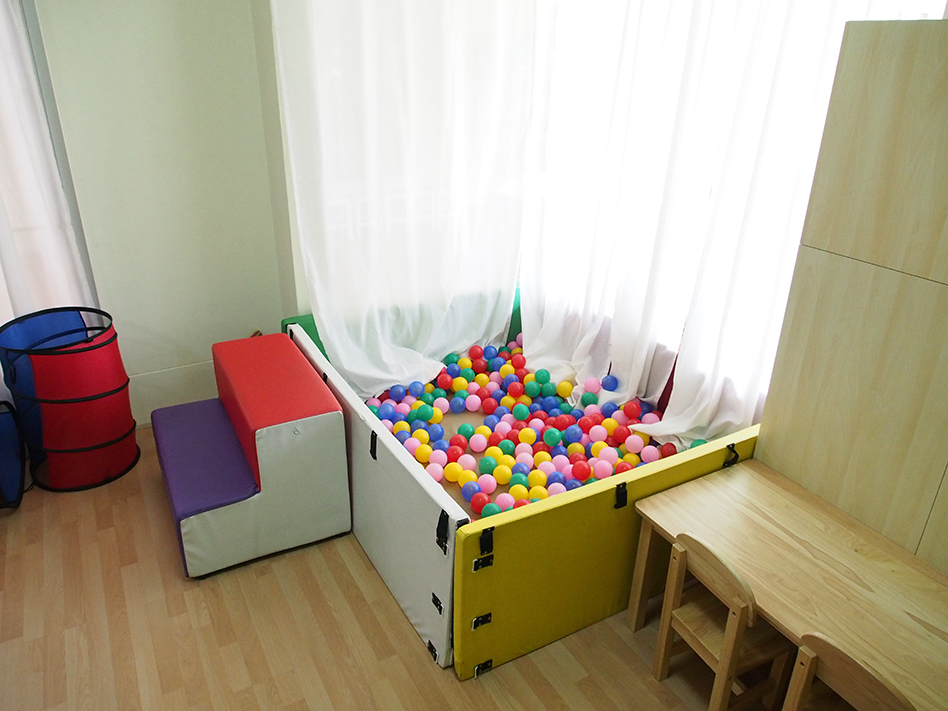
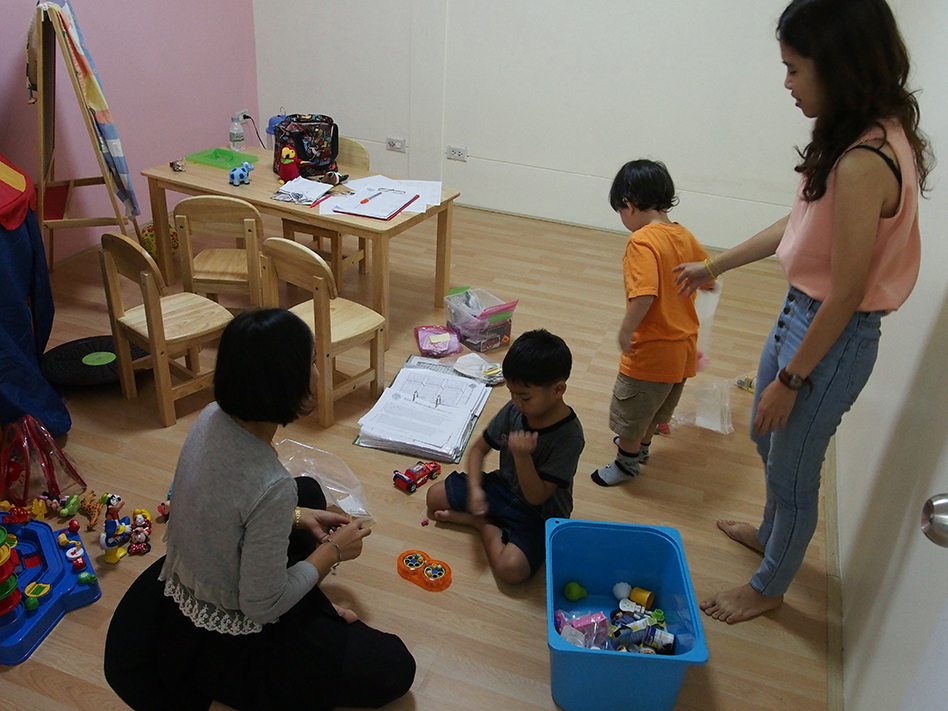
ABA methods can be used to
- Teach new skills (i.e., language; social, academic, leisure, and functional life skills)
- Generalize or transfer behaviors from one situation to another (e.g., applying conversation learned in 1:1 sessions at school)
- Modify conditions under which interfering behaviors occur (e.g., changing the learning environment so as to foster attention to the instructor)
- Reduce inappropriate behaviors (e.g., self-injury or stereotypy)
Moreover, we would like to educate and change Thai people attitudes about and other related disorders that:
- There is potential for children with learning differences to develop skills
- Quality treatment programs must be intensive and individualized. Treatment plans must have clear step-by-step goals and structure which build upon existing skills.
- Children with learning differences should be trained and educated based on individual learning needs, as opposed to a “one-size-fits-all” educational approach.
Last but not least, CARE also has a mission to create a professional career and develop experts in Thailand by providing training opportunities to our staff.
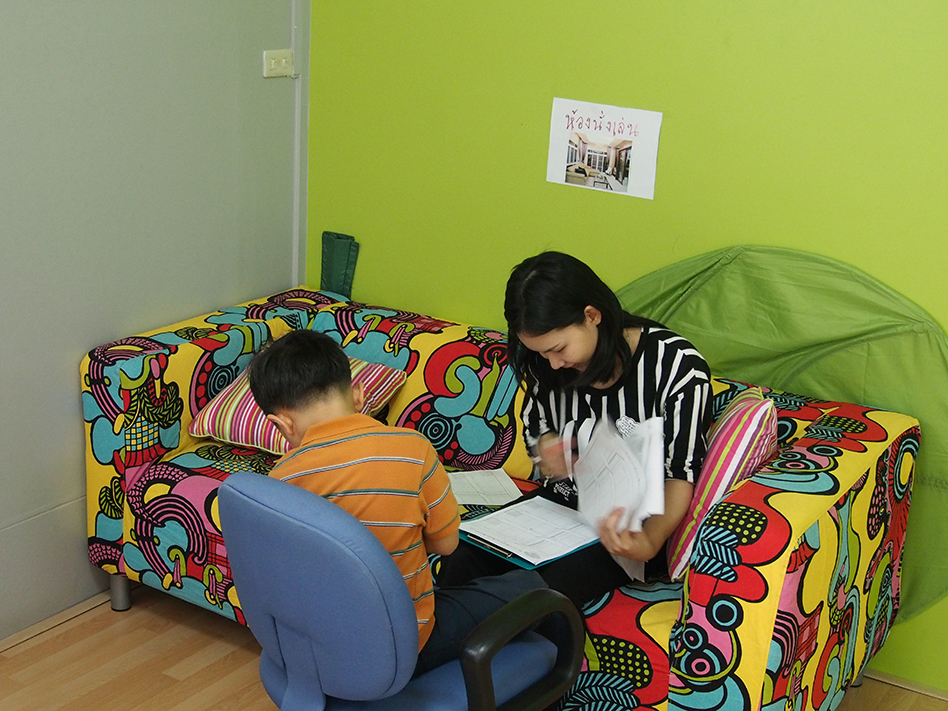
Types of CARE Services
An intensive one-on-one therapy / Early intervention
CARE offers therapy services in various settings, including the CARE center, home, schools, and community- based settings. Early intervention is essential for children with learning differences. Numerous pieces of research show that an intensive and consistent early intervention service improves independent living skills in children with learning differences.
CARE Thailand provides an intensive program based on the principles of ABA and the curriculum, grounded on over 40 years of research on the use of ABA-based procedures for teaching skills to individuals with various age
ranges. We offer a one-on-one intensive customized play-based therapy program with a clear structure of treatment plan goals, including Discrete Trial Training (DTT) and Natural Environment Teaching (NET) approaches up to 40 hours per week with a well-chosen team of qualified-trained therapists to match the child’s learning personalities.
By all means, the principles include family-centered and family-supportive practice, natural environments, promotion of active child participation in learning, and functional and systematic practices that consider developmental readiness and unique variations in learning.
One-on-one Shadow Support in the school setting
Once the individual has pre-requisite skills and is ready to go to school, two members of the therapists will provide shadowing support at the school setting to help the individual generalize skills learned from the one-on-one. The Case Supervisor will collaborate with the school team to update the individual’s progress and receive any concerns from the school to develop the treatment plan to improve the individual’s skills one-on-one.
Parent Training
The overall purpose of caregiver training is to give families and caregivers the tools and strategies they will need to carry out the principles of ABA across all the settings that a child encounters day to day.
Intensive Toilet Training
Intensive toilet training is a technique that can be used for most children, with and without disabilities. It is sometimes called massed practice or the Azrin technique. Intensive toilet training requires you and the child to remain close to the restroom for the entire period and the training should not be interrupted for any reason. Be sure that you have no other obligations for the training period. Intensive toilet training involves increasing your child’s liquid intake, frequent trips to the potty, and following a standard set of procedures for successes and accidents.
PECS – Picture Exchange Communication System
PECS is a unique alternative communication system developed in the United State in 1985 by dr. Bondy and Frost It uses picture or symbols to teach functional and intentional communication. PECS benefits children who are non- verbal, have limited or unclear speech.
The use of AAC – Augmentative and alternative communication
AAC means all of the ways that someone communicates besides talking. People of all ages can use AAC if they have trouble with speech or language skills. Augmentative means to add to someone’s speech. Alternative means to be used instead of speech. For the High-tech option, CARE teach the children to apply an application on an iPad or tablet.
Assessment of Functional Living Skills (AFLS)
The Assessment of Functional Living Skills is a criterion-referenced skills assessment tool, tracking system, and curriculum guide for teaching children, adolescents, and adults with autism or other developmental disabilities the essential skills needed in order to achieve the highest level of independence as possible.
CARE’s Curriculum categorizes skills needed for development into eight fields as follows:
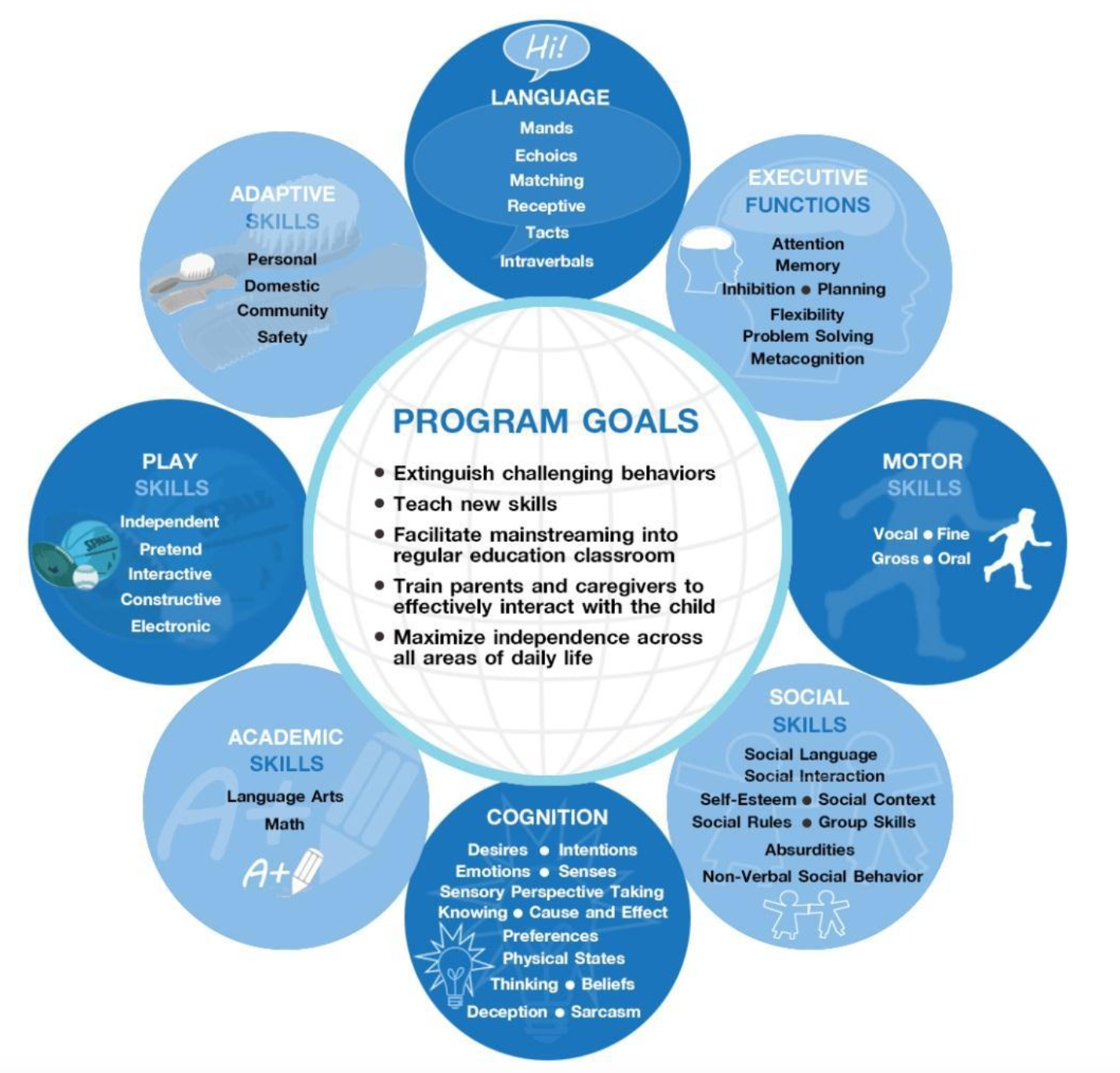
- Language: Ability to communicate effectively and understand others
- Executive Function: Goal-oriented behavior and self- management, such as memory attention, planning, self-awareness, flexibility, and problem-solving
- Motor: Visual, oral, and motor skills a child needs to communicate effectively, participate in play and daily living activities, and succeed academically
- Social: Social interactions and relationship building, as well as social language skills and self-esteem
- Cognition: Perspective-taking skills or “Theory of Mind” (i.e., the ability to understand the mental states of oneself and others)
- Academic: Language Arts and Math skills so a child can independently participate in assignments at school
- Play: Various forms of play, including interactive, independent, pretend, and computer play
- Adaptive: Ability to engage in daily living activities independently, from dressing and toileting to setting the table and shopping for groceries









